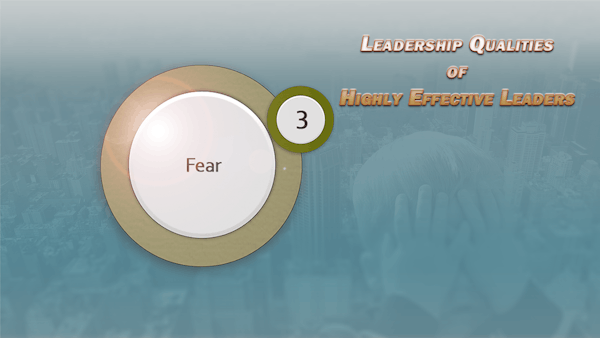
Top Leadership Qualities: Leadership and Fear
This may be shocking to you or to anyone that I would be proposing leadership and fear go hand in hand. This is because there’s not a single article I could find quickly that suggests that fear is a leadership quality of highly effective leaders.
As your attention focuses on this quality of leadership, you will see why fear is a vital quality of effective leaders. And the more you read, the more it will make sense.
Now that your attention has at least been stimulated, just pretend this proposal is valid. Then dig in and understand how fear is a quality of leadership no leader can be without.
How I Discovered the High Value of Fear
You might find yourself thinking this is too farfetched, and I agree, or I used to agree. Remember, everything you know isn’t everything you should know.
As I finished my career in the Navy, I was suffering a depression, and on a severe downhill slide in life. This got me pointed to those “mind” specialists like psychologists and psychiatrists.
These professionals all had the same conclusions. They said I suffered from severe anxiety along with my depression. They also had the same question, “How did someone with your severe anxiety go so far as a leader?”
For me, fear wasn’t just an important quality. It was an obsessive quality, more like a disease.
This caused me to study fear more and then consider its value to even the most “normal” leaders past and present. As I investigated more, I discovered fear is the secret leadership attribute nearly all fail to consider.
Why Leaders Must Embrace Fear
Wouldn’t you agree that leaders that constantly take excessive risks just drive you crazy and rake your nerves until they fray?
This is where fear plays a vital role. A leader must have fear to understand the limits and risks. A leader must be wise enough and courageous enough to be bold but must also have fear to mitigate decisions and actions.
In a military conflict, great leaders like George Washington and George Patton did not operate without fear. Once in battle, they may appear to operate fearlessly, but I see that more as being willing to take the same risks they subjugated their army to when they made their plans. Washington and Patton were bold, decisive, assertive, trustworthy and forward-thinking. They also possessed the right amount of fear to avert disaster.
The same is true about young entrepreneurs like Ford, Edison, Gates, Rockefeller, Perot, etc. These businessmen were leaders, and they did not operate without fear. But they did not let fear control them. Fear guided them to the correct, bold decisions allowing them to innovate in the most effective manner.
Having, using, and respecting fear serve to enhance a leader’s decisiveness, innovation and creativity, and willingness to be bold in a way that creates huge success without huge costs to others. These leaders possessing, understanding, and accounting for fear truly have the trust of those they lead, and admiration of those observing them.
What Happens When a Leader is Fearless
Leaders who truly make fearless decisions are doomed. They don’t know where to limit risk, and when to stop pushing others.
These leaders tend to be the ones that lead from behind. They won’t take the risks they ask those they lead to take and have all kinds of excuses for doing so.
In the military, lack of fear leads to death and huge losses of people.
In business, it leads to failed projects, failed launches, failed divisions, and failed companies. It can even lead to death is certain markets.
Regardless, failed companies have huge impacts on peoples’ lives. The individuals you lead in your business depend on your success as a leader for their livelihoods. The business leader that doesn’t comprehend this while operating fearlessly will ruin other people without due regard.
Wouldn’t you agree it’s better for a leader to have and understand fear than it is for the same leader to operate fearlessly without regard for the damage or injury they will cause to those they lead?
Leading and Fear with Anxiety Disorders
The challenge I never understood I was dealing with was my own out of control anxiety disorder. Everything I did caused me so much fear and anxiety, that it cost me time and energy compensating for it.
There was no doubt I had fear. But I had to operate and appear unafraid. I understood this.
I did not understand my anxiety until after I retired. But I did know I could not let my excessive fear control decisions and my outward presence. If I did, I would lose my boldness and ability to be creative and decisive.
In my book, “Overpower Oceans: 7 Leadership Principles that Crush Your Most Powerful Mental & Anxiety Barriers,” I cover the principles most important to countering seemingly uncontrollable fear. These principles serve as your guide. They also help leaders understand more on how these qualities of effective leaders come to play.
The bottom line is fear is a mandatory quality for the brave and bold. Being afraid is human and very, very necessary for you to be a highly effective leader.
International speaker, author, and entrepreneur. Retired navy officer, former commanding officer. Over 35 years of leading, coaching, mentoring, and speaking.
Read more